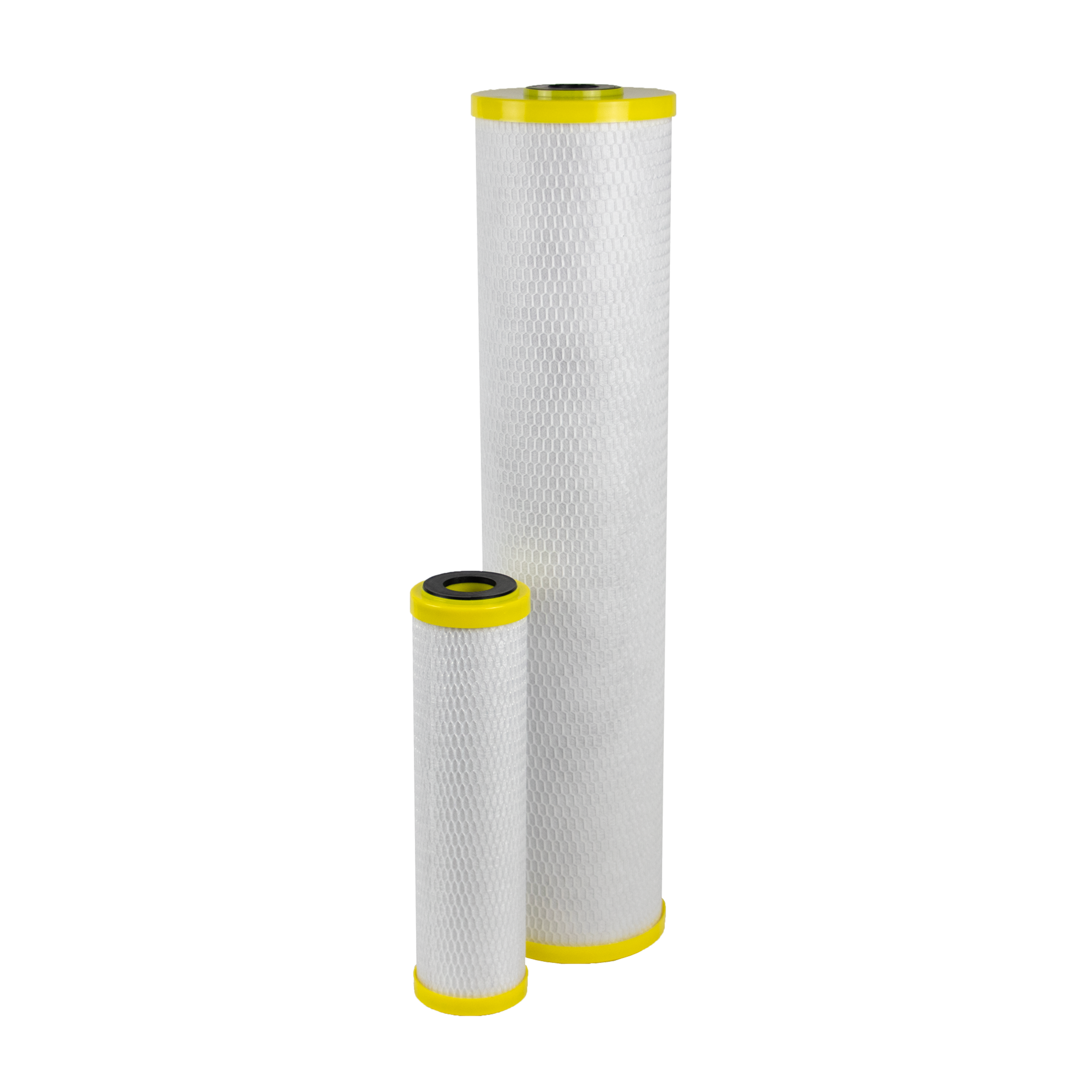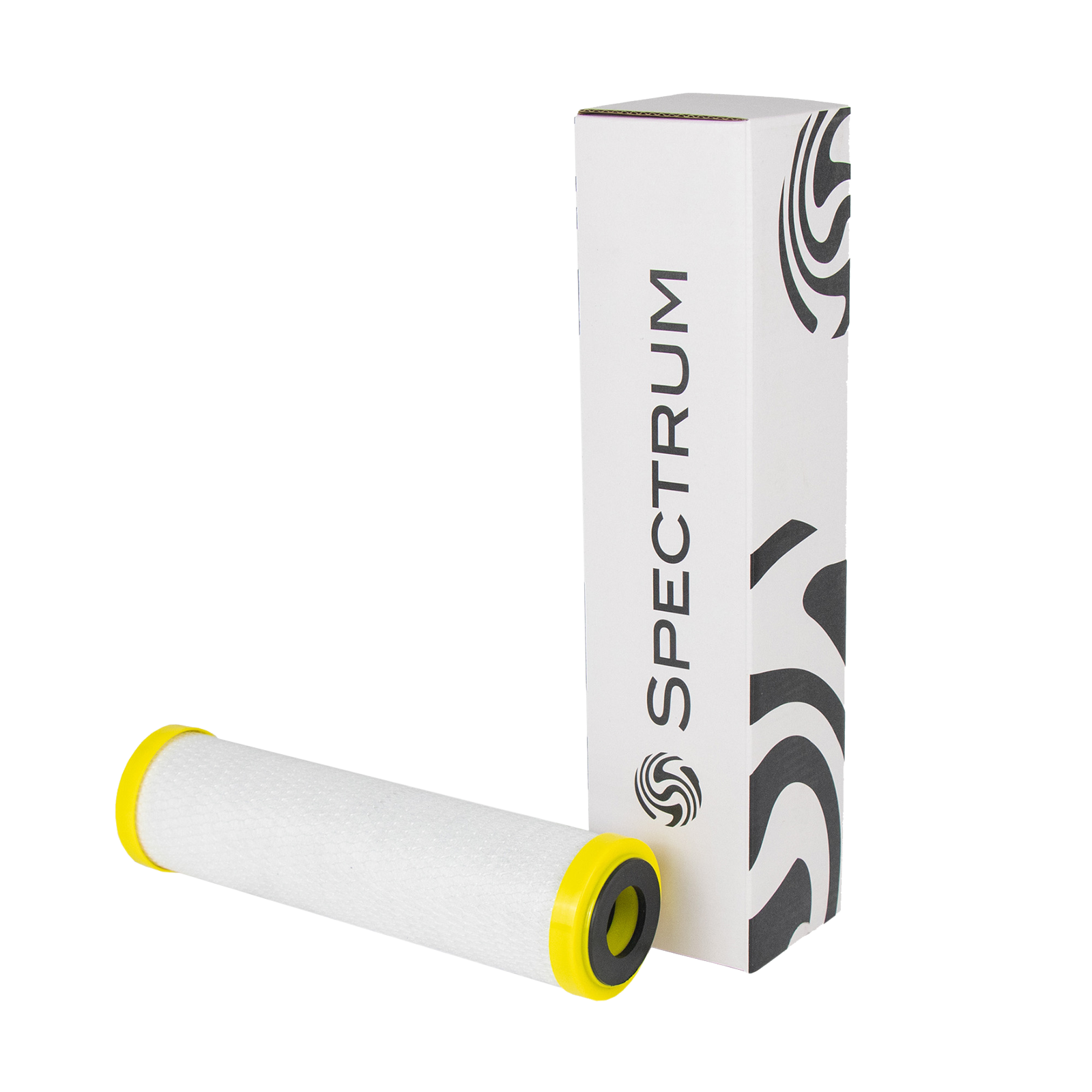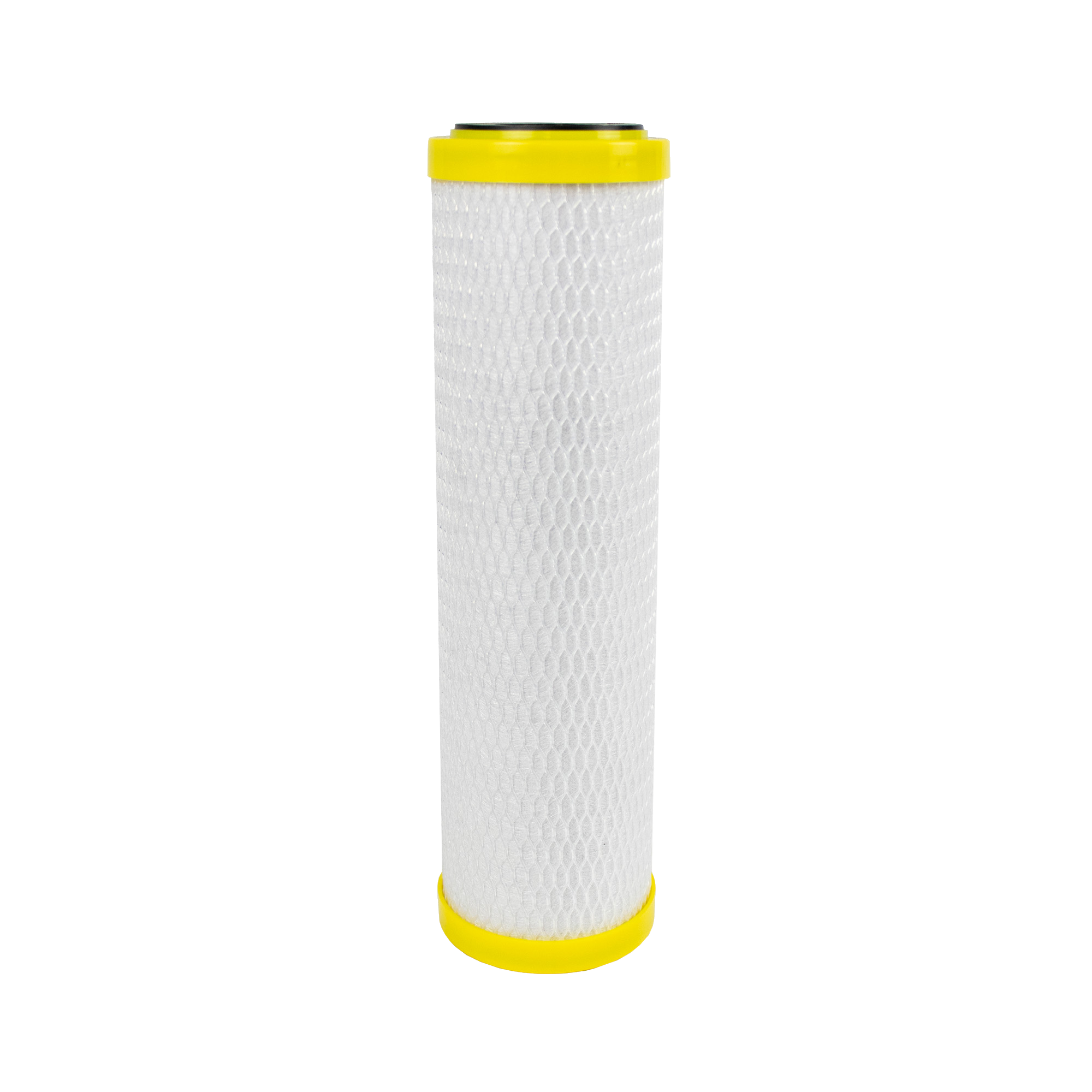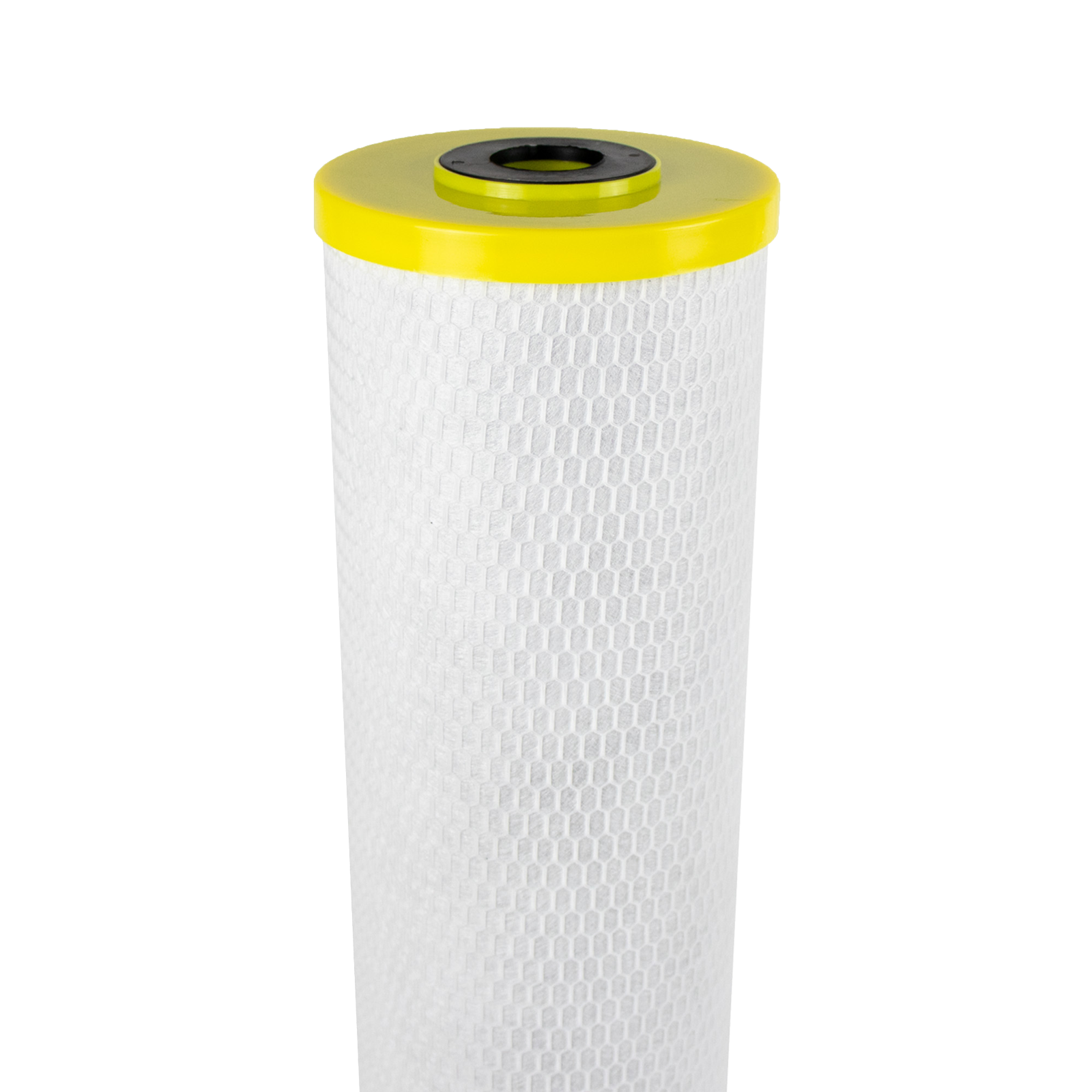870 Premier Carbon Block (PCB)
- Outstanding chloramine and chlorine reduction
- Ultra porous, modified powder activated carbon for exceptional water quality
- Low pressure drop across the range
- Outer polypropylene wrap protects against premature blinding
- Manufactured from FDA compliant materials
- Aquatics
- Breweries
- Renal Dialysis
- Stainless Steel
- Hydroponics
- Public drinking water
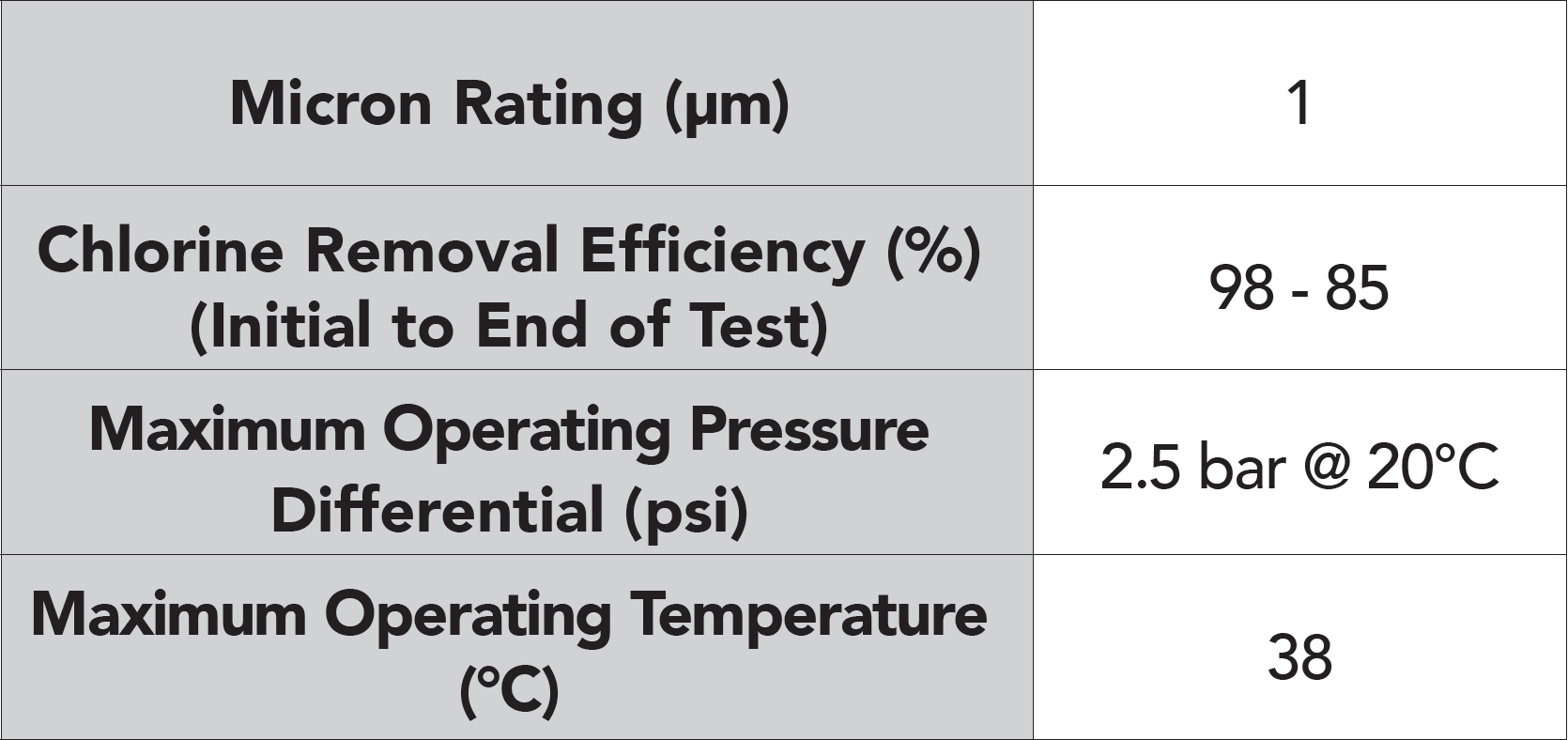

Features & Information
The only cartridge in the 870 range to offer effective chloramine control. Exceptional capacity.
FAQs - PCB
Chloramine is a compound formed by combining chlorine and ammonia, globally used as a disinfectant by utility companies to kill bacteria and microorganisms. The benefit of using chloramine over chlorine to the utility company is the nonvolatile properties associated with chloramine, protecting consumers further down the supply line.
Due to the nonvolatile properties associated with chloramine it will not evaporate from your supply. This is particularly damaging in the following applications:
- Aquatics: Fish are extremely sensitive to chloramine, damage caused to gills and skin makes it fatal.
- Brewing: Chloramine and chlorine kills microbes such as yeast.
- Renal Dialysis: Destroys erythropoietin (EPO), a hormone that signals your bone marrow to make red blood cells.
- Stainless Steel: Chloramine causes pitting encouraging bacterial growth in crevices.
- Improved Taste and Odour: Removes unpleasant tastes and odours from water, making it more enjoyable to drink and cook with.
- Chlorine Removal: Highly effective at removing chlorine and its byproducts from water.
- Chemical Filtration: Reduces or removes various chemical contaminants from water.
- Adsorption of Contaminants: Activated carbon has a large surface area and porous structure, allowing it to effectively adsorb a wide range of impurities.
- Versatility: Used in a variety of applications, including residential, commercial, and industrial settings.
- Cost-Effective Solution: Carbon filters offer a cost-effective filtration solution compared to other complex filtration technologies.
Carbon filters work by utilising activated carbon, a highly porous material with a large surface area. When water passes through the carbon filter, contaminants come into contact with the activated carbon. The contaminants are either adsorbed onto the carbon’s surface or undergo chemical reactions that neutralise them. This process effectively removes impurities such as chlorine, volatile organic compounds (VOCs), odours, and some heavy metals, resulting in cleaner and purer water.
